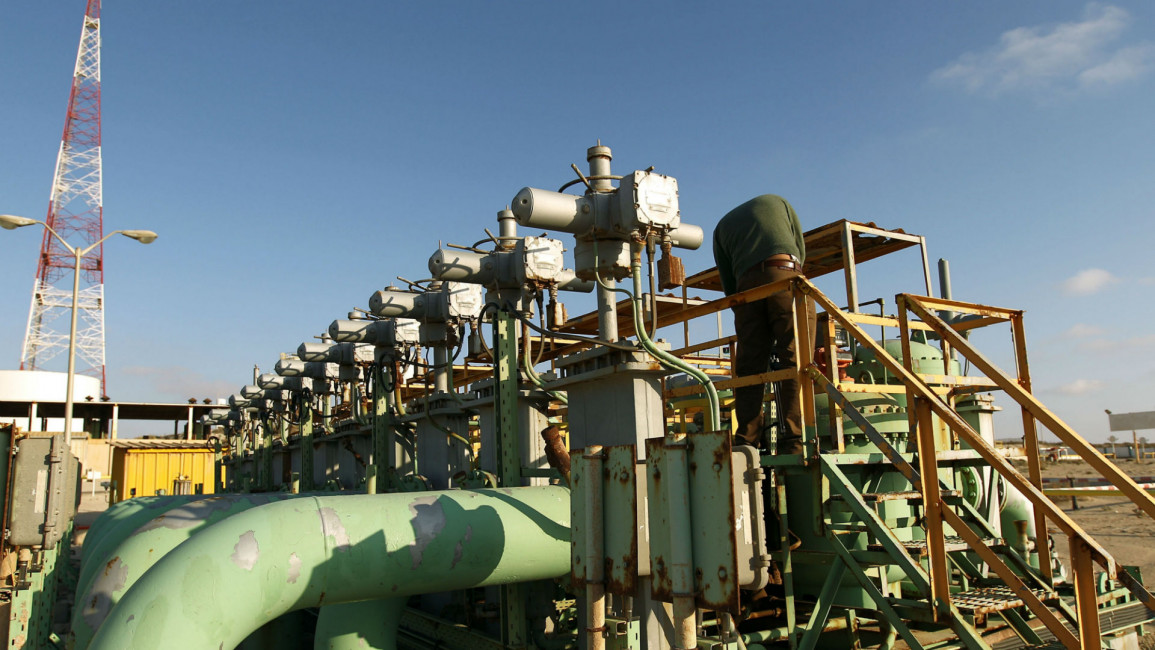Severe water crisis looming in Libya
Suleiman Aboud, head of the information department at the Tripoli-based Libyan Ministry of Water Resources, told al-Araby al-Jadeed that Libya was expecting shortages as existing water resources face a variety of challenges.
| The annual water shortage is estimated at 500 million cubic metres. |
Aboud explained that the annual groundwater recharge in Libya is around 250 million cubic metres, while consumption is estimated at one billion cubic meters.
Libya's natural water resources are limited, as desert constitutes 90 percent of the country's total area of nearly 1.8 million square kilometres.
It has only rained twice in Libya in the past five years.
Water shortages
Groundwater expert Saad al-Din al-Gharyani told al-Araby that the annual water shortage is estimated at around 500 million cubic metres.
Gharyani believes the reasons behind the water shortage include the expansion of agricultural activity, especially with crops that need a large amount of water, as well as the low quality of irrigation systems and the amount of water wasted in agricultural production.
A 2010 government-led study showed that the country's per capita share of renewable water was less than the global average, and that the maximum annual amount of ground and surface water would not exceed four billion cubic metres by 2025, and nearly one billion for desalinated water.
The study divided water resources into conventional - ground and surface water - and unconventional, the "Great Man-Made River", desalinated water, wastewater treatment and cross-border water transfer.
Regarding the available water resources, 95 percent come from groundwater, 2.3 percent from surface water, 0.9 from desalination plants and 0.66 from wastewater treatment.
Alternate water sources
The study called for the need to reuse treated wastewater, noting that the designed capacities can take up to 450,000 cubic metres, while operational capacities only produce about 150,000 cubic metres per day.
On the import of water, the study offered several options, including from Turkey and Gabon. In 2011, Libya sought to import water from the Turkish Manavgat River to Tobruk through three carriers. The first batch was agreed to be free of charge as an experiment for agricultural use.
The study also called for the reconsideration of investing in the Man-Made River, prioritising urban water supply to areas that do not have access to desalinated water, as well as the reconsideration of the priorities and percentages of water distribution.
| Facilities to treat wastewater can take up to 450,000 cubic meters, but normally only about 150,000 cubic meters is treated per day. |
Work started on the Man-Made River in 1983, and went on for 25 years, with a total cost estimated at some $30 billion. However, the water of the river is non-renewable, and will thus run out in 50 years.
The project transfers fresh water through large underground pipes, with a diameter of four metres each, extending from wells in the south-eastern oases of al-Kafra and al-Sarir and from the Fazzan Basin and Mount Hasawna in the south-west. The water then reaches northern cities with high population density.
Efforts by Muammar Gaddafi, who was overthrown in 2011, to connect the Man-Made River to African lakes, such as those in Congo and Chad, have failed.
In 2009, Libya sought to sign a number of contracts with European countries to use nuclear energy in several projects, including desalination plants, but no plans came to fruition.
This is an edited translation from our Arabic edition.



